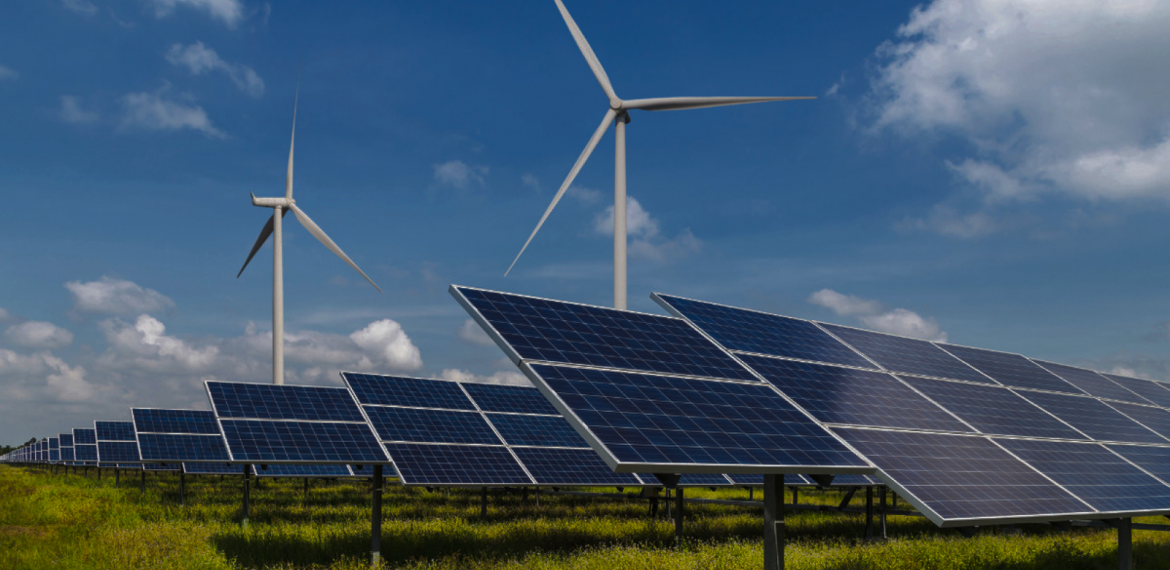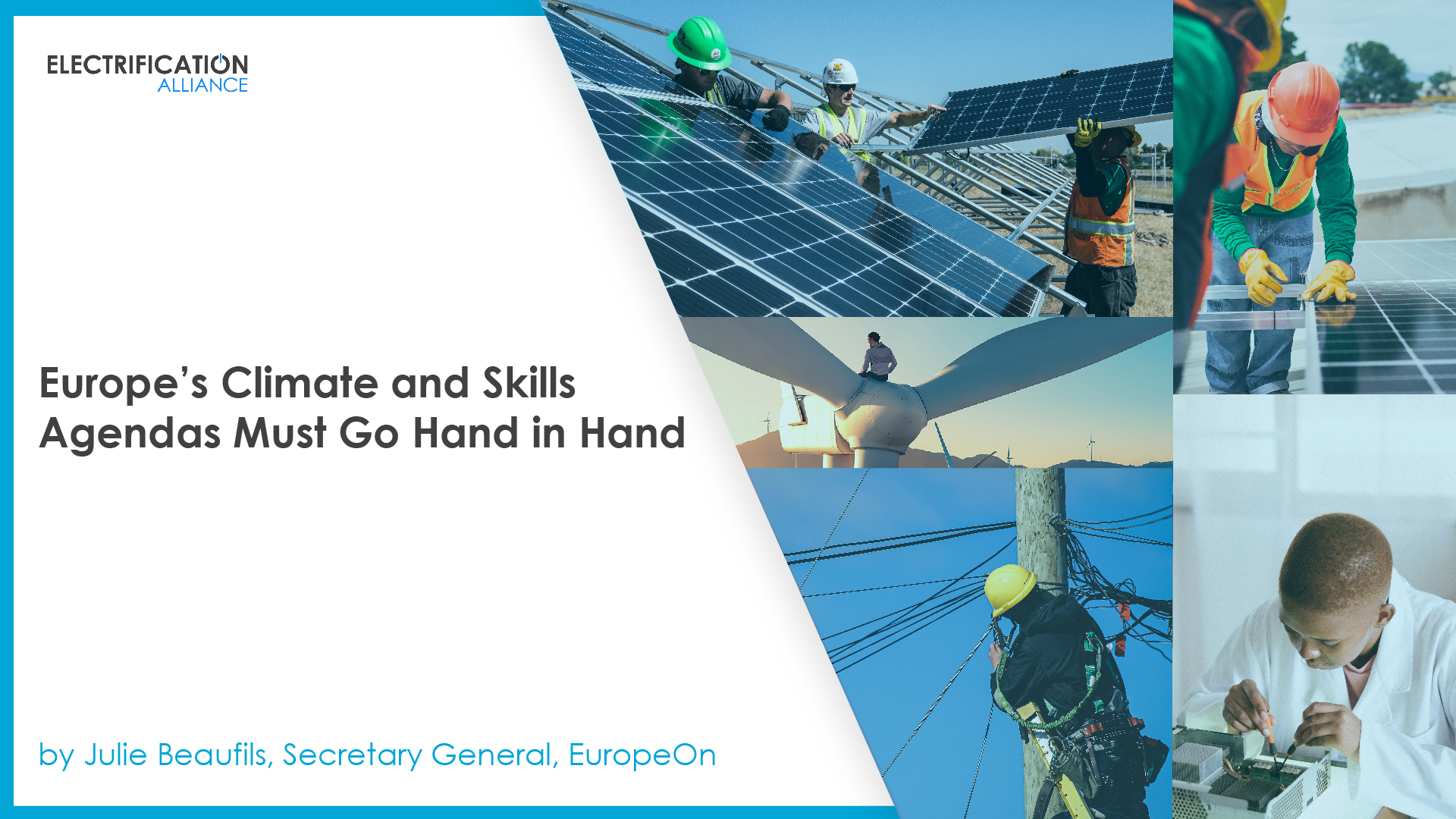
Europe’s climate and skills agendas must go hand in hand
Europe’s climate and skills agendas must go hand in hand

Julie Beaufils, Secretary General, EuropeOn
The Fit for 55 package lays out ambitious climate and energy targets. A crucial prerequisite to delivering them will be to ensure that there is a sufficient number of skilled professionals available.
The change in energy paradigm will need to be accompanied by an equal shift in the way in which we train and skill the people needed to support it. If the skills shortfall is not addressed at the policy level, it will present a major hurdle to Europe reaching net zero.
Some 1.8 million professionals work in Europe’s electrical contracting industry in over 300,000 businesses. They provide electrical installations for buildings and infrastructure and support cities and citizens in realising the shift from fossil fuels to renewable and green energy. However, even before the Covid crisis, electrical contractors across Europe were reporting many job vacancies and skills mismatches.
The good news is that the sector has many job opportunities to offer to young and passionate professionals with new, exciting roles that address the challenges of both digitalisation and renewable energy. Indeed, EuropeOn has recently released a study on the job potential for electrical contractors in the coming decade, highlighting the magnitude of the skills and workforce needs of our climate targets.
So far, the Renewable Energy and Energy Efficiency Directives proposals include some good provisions skills. Holding the Member States accountable for providing certification schemes for installers of the latest technologies is a positive development and will play a key role in fostering electrification. The fact that the Commission is asking the Member States to ensure that there are sufficient installers of renewable heating and cooling technologies is also much needed. The emphasis on promoting participation is important as there is a worrying lack of applicants reported in our sector – partly due to the generally poor image of technical education.
However, the EU needs to go one step further to ensure that the human capital with the skills necessary to affect the low carbon economy is available across Europe.
First up, it is not sufficient to just ask the Member States to ensure that there are enough installers of renewable heating and cooling technologies. The provision needs to be broadened in the Renewable Energy Directive to cover installers of all clean energy technologies – from solar photovoltaic to electric vehicle chargers, energy management and more. We are going to need all of these for a successful green and digital transition.
Next, we must make sure that support for upskilling and reskilling does not overlook SMEs and very small enterprises, which constitute the majority of electrical contractors and energy efficiency professionals. It is these smaller companies that face greater difficulties in accessing skilling programmes.
Finally, the proposal enshrined in the Energy Efficiency Directive to ensure that the Member States periodically assess that energy efficiency professionals have the correct level of competencies is welcome but doesn’t go far enough. We face a dual shortage of both skills and applicants, and this assessment must be coupled with an analysis of the shortfall between availability and demand. A thorough gap analysis would support the Member States in addressing the issue and creating a plan to attract and train the number of professionals needed in order to realise climate-neutrality in the years ahead.
The Electrification Alliance’s event on the morning of November 17 presents the perfect fora to discuss the best policy approaches. Join top-level policymakers, CEOs of leading energy companies in Europe and us and our partners in the Alliance to define the way we can Electrify Now!

